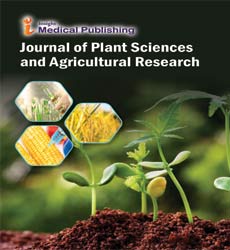Omics Technology to enhance wheat production under Abiotic stress: the way forward to fight hunger
Abstract
Wheat contributes about 20 % of the total dietary calories and proteins worldwide. It is one of the most important crops that play an outstanding role in improving global food security and reducing hunger. Developing of new varieties with high productivity that could survive and respond to different climatic conditions is required for better sustainability. Global climate change is a grand challenge for agricultural production by generating abiotic stress conditions that compromise food production. Advance molecular tools should be used in massive scale so as to make the world combat the global food challenges. Further researches should be done to overcome the challenges associated Omics technology targets the characterization of plant genes and signaling of cells under different stress. Omic technology is important to understand the reaction in plants under stress and helps to study the function or changes in gene at all times. Efficient genome editing system, using CRISPR/Cas has emerged as a powerful tool for the precise manipulation of eukaryotic genomes including important crop plants. This system is useful in discovering gene function as well as the development of novel genotypes with desirable traits. CRISPR/Cas system is able to efficiently generate targeted mutations in crops contains very large and complex genomes like wheat. Bioinformatics play and important role in identifying and designing the target sequence for gene editing and avoiding off-target effects. The ability to develop wheat cultivars with stable drought tolerance and high productivity achieved through targeted genome editing will discussed potentially revolutionize crop breeding
Open Access Journals
- Aquaculture & Veterinary Science
- Chemistry & Chemical Sciences
- Clinical Sciences
- Engineering
- General Science
- Genetics & Molecular Biology
- Health Care & Nursing
- Immunology & Microbiology
- Materials Science
- Mathematics & Physics
- Medical Sciences
- Neurology & Psychiatry
- Oncology & Cancer Science
- Pharmaceutical Sciences
